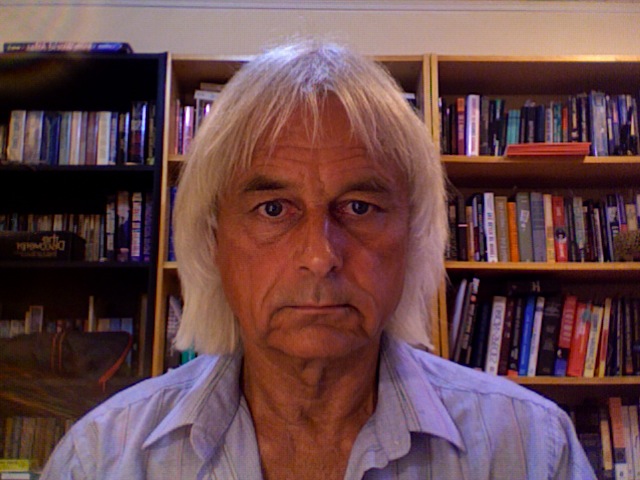In his September 10, 2014 newsletter, Outside the Box - An Independent Scotland? global investor and financial raconteur John Mauldin writes,
"A "yes" outcome would have significant ramifications not just for the United Kingdom but for all of Europe. Can a region of a country just decide it wants to be independent? You take a vote and that's it? To everyone's credit in the United Kingdom, they are being quite civilized about it. However, I imagine if Scotland votes to leave, the negotiations will be rather less cultured. There will be a big bill to be paid before everybody gets to leave the restaurant. Just who ran up what part of the tab over the last 300 years is an issue that has the potential to turn into a rowdy soccer -- pardon me, football -- match."
Mauldin is a smart guy who understands things when he sees them. But 300 years of national running up of debt owed in British pounds? After three centuries of work and vast increases in the annual economic production and consumption of real economic wealth, Mauldin just takes it as given that Scotland, like every other nation on Earth, is saddled with vast and ever-increasing debt owed in money? What kind of monetary abomination saddles nations with permanent unpayable debt no matter how hard they work and produce to get out of debt? And who is all this government and private sector debt owed to?
The answer to the money questions is simple. The debt-repayment money is owed to commercial banks that issue the nation's money supply; and to capitalists who accumulate the borrowed-and-spent money as their profits. Our bank-issued money system and our capitalist economic production system together perform the dismal function of permanently saddling nations with unpayable debt.
But most people do not know or refuse to believe that commercial banks issue the world's money supply by creating bank deposits to fund loans and to fund bank purchases of government debts (bonds). Most people believe "the government" issues the money, and spends the money into existence in "the economy"; then people deposit the government money in banks, and banks lend out their depositors' savings (this is the fiat money and loanable funds myth; in fact we use credit money that is issued by banks and loaned into existence, not fiat money that is issued by governments and spent into existence). So aside from members of the monetary reform and public banking communities, most people do not see the simple arithmetic of bank-issued money (and debt), and are mentally blind to the system's fatal arithmetic flaws.
The roots of the blindness are many, and deliberate.
In his 1994 book, The Long Twentieth Century: Money, Power and the Origins of Our Times, Giovanni Arrighi explains that money is not simply an economic or a financial phenomenon, and capitalism is not merely an economic system. Feudal kings acquired land by military conquest and held it by dividing the spoils with a class of nobles who shared the king's love of power, wealth and privilege ... and who were willing to perform mass murder (war) and oppression (serfdom) in order to enjoy what they desired. Capitalists accumulate "property" (industrial, territorial, intellectual, commercial, etc.; and above all liquid property in the form of money) by financial conquest, supplemented and secured by the legislative, legal, police and military power of the capitalist state.
Capitalism, like feudalism before it, is rule by ownership. Feudal monarchies owned all the land. Capitalists own the national money-issuing systems and, as a consequence, build up and/or buy up ownership of the most monopolizable and money-profitable wealth-producing industrial infrastructure, as well as strategic infrastructure like inventions and scientific technology that can be turned to profitable and/or military uses.
War is typically thought of as a "cost" to nations, who spend their efforts building things then blowing them up, and whose enemies spend their efforts blowing your stuff up, so when all these self-destructive economic efforts are concluded you have to do a lot of rebuilding work just to get back to where you were before the war. War is an economically negative sum activity. When the war is over, you have to add a lot of positive effort to get back to zero.
By separating the capitalists' balance sheet from the state's balance sheet, capitalists can get the state to borrow money (by selling war bonds, bought with newly issued bank money, and with the savings of 'patriots') to buy war materials from the capitalists' military industries. The state (taxpayers) gets all the national debt, after the capitalists have earned all the borrowed-and-spent war-money as their profits.
Money-issuing bankers and plutocrat investors (i.e. the capitalist over-class) are the historical market for government bond-debt, so the nations owe semi-annual interest payments to the capitalists, and always "owe" loan principal repayments whenever the bonds mature, even if governments continually roll over and never actually pay down their national debt. National debt hangs as a sword of Damocles over the political heads of nations. That giant sucking sound is money flowing from taxpayers to bondholders.
Capitalists have figured out how to make war profitable to capitalists, and to simultaneously gain power over political governments. By their private ownership of the money-issuing system (the commercial banks), capitalists act as a monetary Leviathan, to keep them all in debt.
War is the best way to indebt nation-states. The people are indebted with small business debt and consumer debt, primarily mortgages but also car loans, credit card debt and student debt. Within the past year in the US, total student debt has surpassed total credit card debt, in the $1 trillion range. A trillion dollars is a lot of debt for borrowers, and a lot of money for the people who sold stuff to the borrowers and now own the money that was spent.
Beginning in the 1970s a new capital markets financial system has been supplementing and replacing the traditional banking system as the source of loanable money. When a bank issues a mortgage, the bank creates the money that it uses to fund the loan. Bank-issued mortgages add new money into the money supply. Then the bank sells the mortgage into the capital markets system, which bundles mortgages and converts them into mortgage-backed securities that are marketed to large pools of previously saved money like pension funds.
Investors' savings are used to purchase borrowers' mortgage debts from the banks, so it is ultimately the investors' savings that provide loanable funds for mortgages and collateralized consumer debt. In this way the capital markets financial system functions in exactly the way most people (wrongly) believe the banking system functions: by lending savers' savings to borrowers.
(Note: You can view every article as one long page if you sign up as an Advocate Member, or higher).






